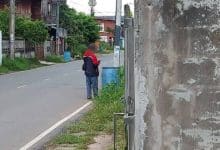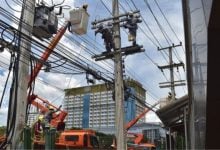Thailand considers cutting free public lighting to lower power bills

The Provincial Electricity Authority (PEA) stated that discussions among national state agencies are necessary regarding the Energy Ministry‘s proposal to reduce power bills by cutting the government’s free electricity supply to public lighting.
Currently, local administrative bodies and departments responsible for highways and rural roads are exempt from paying for public lighting, a cost shouldered by the government amounting to several billion baht annually. This expenditure has become a significant financial burden.
Reducing this government spending could mitigate losses in the power generation, distribution, and transmission systems, ultimately contributing to a lower power tariff, according to Prasert Sinsukprasert, the energy permanent secretary. Thailand’s current power tariff stands at 4.15 baht per kilowatt-hour.
Pradit Fuangfoo, PEA’s deputy governor for strategy, highlighted the need for policy-level discussions concerning the financial support for public lighting. The PEA, operating under the Interior Ministry, bears the expense of supplying electricity to public lights.
Local and highway officials are developing plans to replace existing public lights, such as incandescent bulbs, with energy-efficient light-emitting diodes (LEDs), which use 80% less energy and could reduce power bills. However, urban development has increased electricity usage in public areas, limiting cost savings despite the use of LEDs.
Although the installation of LEDs with solar panels and batteries was suggested to lessen reliance on the state grid, the high costs involved, due to the frequent replacement of batteries with a short lifespan, pose challenges.
The PEA has been working to reduce expenses under its Triple Transformation Capability Centre policy, which focuses on integrating business, technology, and people for enhanced management and operations efficiency.
Last year, the PEA reduced its operating costs by 700 million baht, and it aims to cut an additional 750 million baht this year, reported Bangkok Post.
In other news, tensions have erupted in Thailand’s government as Prime Minister Paetongtarn Shinawatra and Energy Minister Pirapan Salirathavibhaga lock horns over the nation’s clean energy future.
Latest Thailand News
Follow The Thaiger on Google News:


























